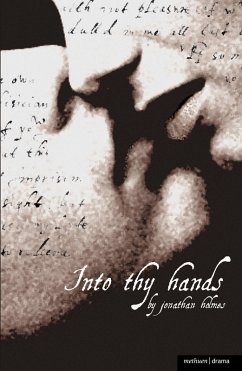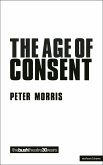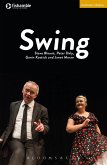'For God's sake hold thy tongue and let me love!'
Into Thy Hands takes place in 1610-11 at the high watermark of the English Renaissance and charts the beginning of an English project that would come to dominate the next three centuries. John Donne stood at the nexus of these developments. At various times politician, soldier, poet, musician, lawyer, courtier, theologian and cleric, and as a man born into one of the most distinguished English Catholic families only to die as one of its most renowned Protestants, he lived lives as most shades of English identity.
He was also intimately involved with three great English innovations that came to dominate the subsequent life of the country: the Anglican church, epitomised by the King James Bible (1611); the scientific enlightenment, prompted by the work of Francis Bacon and the appearance of Galileo's work in English (also 1611); and the great artistic flourishing in theatre, poetry and music. This play is about the collision of those worlds.
Into Thy Hands takes place in 1610-11 at the high watermark of the English Renaissance and charts the beginning of an English project that would come to dominate the next three centuries. John Donne stood at the nexus of these developments. At various times politician, soldier, poet, musician, lawyer, courtier, theologian and cleric, and as a man born into one of the most distinguished English Catholic families only to die as one of its most renowned Protestants, he lived lives as most shades of English identity.
He was also intimately involved with three great English innovations that came to dominate the subsequent life of the country: the Anglican church, epitomised by the King James Bible (1611); the scientific enlightenment, prompted by the work of Francis Bacon and the appearance of Galileo's work in English (also 1611); and the great artistic flourishing in theatre, poetry and music. This play is about the collision of those worlds.









